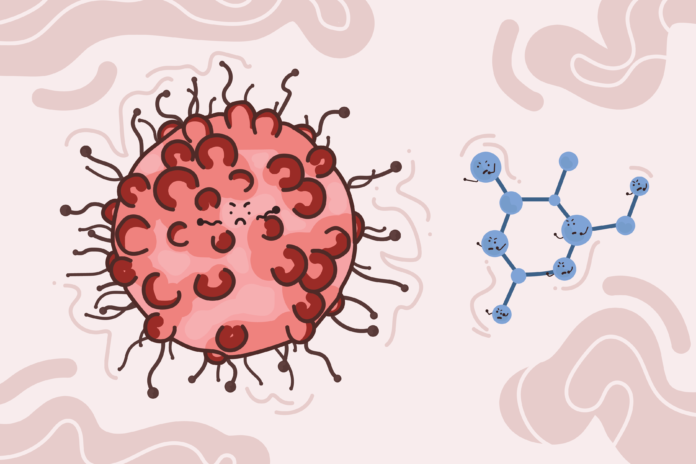LX-1 molecule targets two different mechanisms of prostate cancer progression
By LILLY ACKERMAN — science@theaggie.org
Researchers at UC Davis Health are studying a new compound that has the potential to target two known sources of prostate cancer, showing promise for treatment of the disease.
Dr. Allen Gao, director of Urology Research at UC Davis Health, says that prostate cancer is the most frequently diagnosed cancer in males, and it is the second leading cause of cancer deaths in this population.
The main mechanism for prostate-cancer development is via androgens, or male sex hormones. Androgens bind to androgen receptors in prostate cells, which, in turn, stimulate the growth of more prostate cells. However, this cell growth can become uncontrolled, leading to a tumor.
Current treatment for prostate cancer targets the androgen pathway by blocking androgen signaling and tumor cell proliferation.
“[The androgen pathway is] usually responsive initially because […] [it] is a major driving force of prostate cancer progression,” Gao said. “If you block this pathway, you’ll block cell proliferation and then tumor growth, and patients will be much, much better.”
However, improvements in treatment are still needed; according to Gao, androgen blockers are usually only effective for one-and-a-half to three years before the tumor becomes resistant.
Resistance can arise from mutant androgens that can still bind receptors even when blocked or from androgen receptors that mutate to become constitutively active (always active without needing to bind an androgen at all).
“They gradually become resistant and the treatment fails so the patient will progress very fast,” Gao said.
This resistance is why a new compound, LX-1, is being researched as a solution. LX-1 has the ability to target two different mechanisms of prostate cancer progression.
“There are two major pathways,” Gao said. “One is the androgen receptor variant; another one is AKR1C3, and this one is involved in androgen synthesis. And currently, there is no drug to target AKR1C3.”
Targeting the androgen-receptor pathway and androgen synthesis in the first place both show promise as possible ways to prevent tumor cell proliferation.
“We test[ed] in vitro and then test[ed] in animal models, and it seems to work by blocking these two pathways,” Gao said. “It can inhibit resistant tumor growth, and it can also synergize — it already has — [with the] current anti-androgen drug.”
Combining LX-1 with the current anti-androgen drug improves response and appears to slow tumors’ ability to develop resistance.
“We hope, by our work — we don’t know how long it will take — but hopefully we can develop some oral compound and test in animals, do some other future tests in clinical [settings] and see if we can treat advanced prostate cancer,” Gao said.
Written by: Lilly Ackerman — science@theaggie.org




